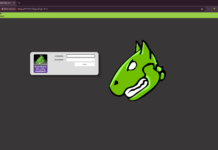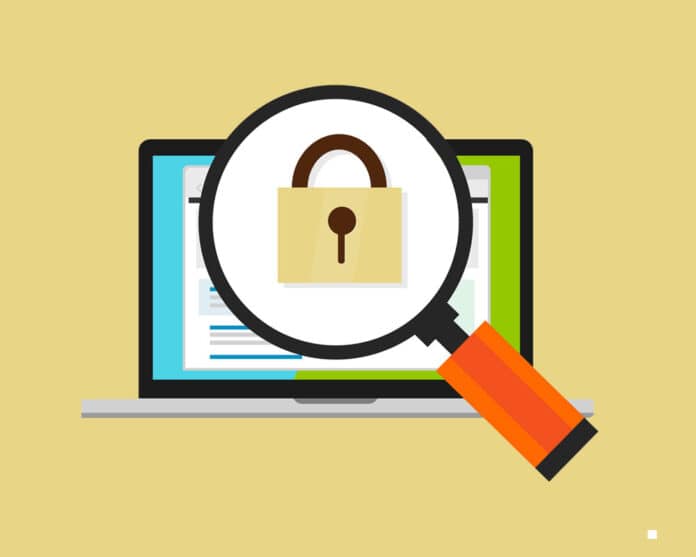Developing flawless code is a challenge all programmers face. Open source code security tools help them write code that keeps cyber criminals at bay.
Code security tools are like digital defenders, digital superheroes or best friends for programmers, keeping coding exploits free, analysing security flaws, and keeping them safe from cunning hackers trying to alter and take advantage of them. Think of them as extremely intelligent software bodyguards, constantly alert for any indications of trouble and prepared to patch any vulnerabilities they come across. They safeguard the code from hackers and other cybercriminals trying to break in and wreak havoc, much like a superhero defending their city against evil guys. These tools assist in locating and reducing any potential openings for malicious actors to take advantage of in the code. They examine the code for security holes, such as inadequate authentication procedures, incorrect input validation, or unsafe data storage.
When programmers write code, they’re writing instructions for a computer to follow. They want to keep their code safe from people who might try to mess with it or steal it. That’s where code security tools come in. They are like special locks and keys for computer code. They help programmers find and fix any weak spots or vulnerabilities in their code that could be exploited by bad guys. For example, you’re building a website where people can sign in with a username and password. A code security tool would ensure that the passwords are stored securely and that no one can easily break into the website.
There are various types of code security tools, including static analysis tools, dynamic analysis tools, and runtime protection tools. SAST (Static Application Security Testing) tools can be added to your IDE. Such tools can help you detect issues during software development. SAST tool feedback can save time and effort, especially when compared to finding vulnerabilities later in the development cycle. Static analysis tools examine the code without executing it, looking for patterns or errors that could lead to security issues. Dynamic analysis tools analyse the code as it runs, monitoring for vulnerabilities or suspicious behaviour in real-time. Runtime protection tools provide additional security measures, such as encryption or access control while the code is running.
How are these tools beneficial for programmers?
Code security tools play a crucial role in helping programmers build more secure and reliable software applications, protecting both the interests of the users and the reputation of the developers. They deliver several benefits to programmers.
- Identifying vulnerabilities: These tools help programmers identify potential weaknesses or vulnerabilities in their code. This could include loopholes that hackers could exploit to gain unauthorised access or manipulate the software.
- Preventing security breaches: By finding and fixing vulnerabilities early on, code security tools help prevent security breaches. This is crucial for protecting sensitive information, such as user data, financial records, or intellectual property, from unauthorised access or theft.
- Enhancing trust: Using code security tools demonstrates a commitment to security and can enhance trust among users, customers, and stakeholders. When people know that a software application is built with security in mind, they’re more likely to feel confident using it.
- Saving time and resources: Finding and fixing security issues after a product has been released can be much more time-consuming and expensive than addressing them during the development phase. Code security tools help programmers catch and resolve issues early, saving time and resources in the long run.
- Compliance requirements: Many industries have regulations and compliance requirements related to data security and privacy. Code security tools can help ensure that software applications meet these standards, reducing the risk of fines, legal issues, or reputational damage.
- Continuous improvement: Code security tools often provide feedback and recommendations for improving code quality and security practices. By incorporating these suggestions into their development process, programmers can continually improve the security posture of their applications over time.
Pros and cons of open source code security tools
The pros are:
Transparency: Open source tools provide transparency in their work because their source code is freely available for anyone to inspect.
Community support: Open source projects often have vibrant communities of developers who contribute to their improvement and provide support to users.
Customisation: Users can modify open source tools according to their needs and preferences.
Cost-effectiveness: Open source tools are typically free to use, which can significantly lower the barrier to entry for individuals and organisations, especially those with limited budgets.
Security: While it might seem counterintuitive, open source tools often have better security than proprietary software.
And the cons are:
Quality variability: The quality of open source tools can vary widely depending on factors such as community support, maintenance efforts, and the expertise of contributors.
Support limitations: Users may need help obtaining timely assistance for complex issues or niche use cases.
Integration complexity: Integrating open source tools into existing workflows or ecosystems can sometimes be more complex than proprietary solutions. Compatibility issues, dependencies, and configuration requirements may pose challenges for users, especially those with limited technical expertise or resource constraints.
Dependency management: Open source tools often rely on external dependencies or libraries, introducing additional complexity and potential vulnerabilities into projects.
Popular open source code security tools
Here, I will take a few examples of open source code security tools for developers to use in their projects. Each tool has its strengths and focuses, so it’s essential to choose the one that best fits the needs of your specific project and programming language.
OWASP ZAP (Zed Attack Proxy): ZAP is a popular security tool for finding vulnerabilities in web applications during development and testing. It helps identify common security risks such as injection flaws, cross-site scripting (XSS), and broken authentication.
Brakeman: Brakeman is a static analysis tool for Ruby on Rails applications. It scans Rails applications for security vulnerabilities, including SQL injection, cross-site scripting (XSS), and mass assignment vulnerabilities.
FindBugs: FindBugs is a static analysis tool for Java code. It detects potential bugs and security vulnerabilities in Java applications, including issues like null pointer dereferences, resource leaks, and insecure random number generation.
SonarQube: SonarQube is an open source platform for continuously inspecting code quality and security. It supports multiple programming languages and provides a range of security-focused plugins for detecting vulnerabilities, code smells, and other issues.
Gosec: Gosec is a Go (Golang) code security scanner. It helps identify security issues in Go programs, such as hard coded credentials, insecure use of cryptographic functions, and potential vulnerabilities in third-party dependencies.
The best Python-focused code security tools
The tools listed below are just a few open source code security tools available for Python. Using them helps ensure that your Python code is secure and free from vulnerabilities.
It’s important to remember that no single tool is perfect, and it’s essential to use a combination of tools to comprehensively scan your code for security vulnerabilities. Static code analysis tools should also be used with other security practices, such as penetration testing and secure coding practices. Since listing every tool in this area is not possible, I would like to invite you to check https://github.com/Rohith-sreedharan/OSFY-Code-Analyzer/ for a complete collection. You will get a comprehensive list of all the tools you can use.
- Bandit
This static application security testing (SAST) tool is designed specifically for Python applications. It helps Python developers identify and address security issues within their codebase by scanning code for common vulnerabilities like SQL injection, insecure direct object references, and more.
Link: https://bandit.readthedocs.io/en/1.7.3/
Installation: pip3 install bandit
Usage: bandit -r <path/to/your/code>
- Safety
This is another free and open source SAST tool that helps find vulnerabilities in Python code. Safety integrates with many popular build tools and CI/CD pipelines, making it easy to automate security scanning as part of your development process.
Link: https://pypi.org/project/safety/
Installation: pip install safety
Usage: safety check
- Flake8
While not exclusively focused on security, Flake8 is a popular linter and code formatter that can help improve the quality and security of your Python code. Flake8 can identify potential security issues such as unused imports, insecure string formatting, and undefined variables.
Link: https://pypi.org/project/flake8/
Installation: pip install flake8
Usage: flake8 <path/to/your/code>
- CodeQL
CodeQL is a powerful static analysis engine developed by GitHub. It can be used to find security vulnerabilities and code smells in various programming languages, including Python.
Link: https://codeql.github.com
Installation: pip install codeql-cli
Usage:
⇒Initialize the CodeQL CLI:
codeql database init <programming language>
⇒ Download the appropriate CodeQL database for your language:
codeql database download --all
⇒ Create a CodeQL database for your codebase:
codeql database create <database-name> --language=<language> --source-root=<path-to-your-code>
⇒ Run a CodeQL query:
codeql query run <query-file>.ql --database=<database-name> --output=<output-file>
⇒ View the results of the query — you can do so in the output file specified in the previous step.
- Contrast OSS
Contrast OSS works by installing an intelligent agent that equips the application with smart sensors to analyse code in real-time from within the application. This allows the software to discover open source dependencies automatically, and provide critical versioning and usage information. Alerts are triggered when risks and policy violations are detected anywhere across the SDLC. The tool monitors, blocks, and alerts on attacks targeting open source libraries and components in production.
Link: https://www.contrastsecurity.com/open-source-security-software
Installation: https://docs.contrastsecurity.com/en/download-contrast.html
Usage: https://docs.contrastsecurity.com/en/use-contrast.html
- ShiftLeft Scan
ShiftLeft Scan enables you to protect custom code with static analysis (SAST), secure open source libraries (SCA), and employ hard-coded secrets detection and OSS licence violation checks. ShiftLeft Scan claims to be built with usability and rapid time-to-value in mind, with one-click deploy marketplace integrations for popular DevOps tools and cloud infrastructure vendors.
Link: https://www.shiftleft.io/scan/
Installation: https://github.com/ShiftLeftSecurity/sast-scan/releases/tag/v2.1.1
Usage: https://github.com/ShiftLeftSecurity/sast-scan?tab=readme-ov-file#scanning-projects-locally
In the end, here’s a list of a few other development code tools that can act as useful resources.
- SonarQube (https://www.sonarsource.com/products/sonarqube/): Best for maintaining code quality.
- ReSharper (https://www.jetbrains.com/resharper/): Best for refactoring code.
- CodeClimate (https://codeclimate.com/): Best for GitHub users.
- CAST (https://www.castsoftware.com/highlight/how-it-works): Best for performing software assessments at scale.
- Codacy (https://www.codacy.com/): Best for CI/CD integrations.
- Synk Code (https://snyk.io/product/snyk-code/): Best for security testing.
- Veracode Static Analysis (https://www.veracode.com/products/binary-static-analysis-sast): Best for vulnerability scanning and coverage.
- Synopsys Coverity (https://www.synopsys.com/software-integrity/security-testing/static-analysis-sast.html): Best for DevOps teams.
- Fortify Static Code Analyzer (SCA) (https://www.microfocus.com/en-us/cyberres/application-security/static-code-analyzer): Best for enterprise security.
- PVS-Studio (https://pvs-studio.com/en/): Best for game developers.
- PMD (https://pmd.github.io/): Best open source code analyser.
- Infer (https://fbinfer.com/): Best for mobile developers.
















































































